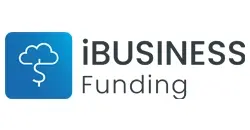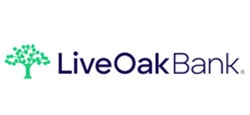Credit unions and banks generally offer the lowest rates on most types of financing. In contrast, online lenders typically charge the highest rates.
Best Low-Interest Business Loans in February 2026
Compare top lenders to find the best low-interest loan for your business.
American Express: Best line of credit
$2,000 to $250,000
3.00% to 27.00%
3% to 9% for 6-month terms
6% to 18% for 12-month terms
9% to 27% for 18-month terms
12% to 18% for 24-month terms
6 to 24 months
- Relatively low time in business and annual revenue requirements
- Only pay interest on what you borrow
- No application, origination or prepayment fees
- Only select customers can qualify for financing over $150,000
- May require collateral and/or a personal guarantee
- Potential late fees of up to $100
Why we picked it
American Express is at the top of our list because it offers rates as low as 3.00% and is transparent about the full range of rates. This revolving line of credit offers access to up to $250,000, which qualified borrowers can draw from as needed over 6 to 24 months. You’ll only pay interest on what you actually borrow.
Each time you borrow money against your line of credit, it opens a new installment loan and you can choose the term length for repayment. Interest rates vary depending on the loan term, with rates starting at 3.00% for 6-month loans, 6.00% for 12-month loans, 9.00% for 18-month loans and 12.00% for 24-month loans. Note that only select customers will qualify for lines of credit over $150,000.
How to qualify
In order to qualify, you’ll need to meet American Express’ criteria of:
- Minimum credit score: 660
- Minimum time in business: 1 year
- Minimum annual revenue: $36,000
Fundbox: Best for startups
- Relatively low credit score, time in business and annual revenue requirements
- Revolving funds let you to borrow money as needed
- Helps build business credit
- Short repayment terms increase the cost per payment
- Weekly payments required
Why we picked it
With relatively low credit score, time in business and annual revenue requirements, Fundbox is our top option for startup companies. The online lender offers lines of credit up to $250,000 with affordable starting rates, though the exact rate you pay will depend on the repayment terms.
Each time they withdraw funds, Fundbox borrowers are asked to choose a payment plan, repaying their funds over three or six months. For 3-month terms, interest rates start at 4.66%. For 12-month terms, rates start at 8.99%.
Unlike many of the lenders on this list, Fundbox requires weekly loan payments. However, these payments will be automatically debited from your business checking account, ensuring that you never miss a payment. For startups, this may be particularly beneficial, making it easier for you to establish and build business credit.
How to qualify
In order to qualify, you’ll need to meet Fundbox’s criteria of:
- Minimum credit score: 600
- Minimum time in business: 3 months
- Minimum annual revenue: $30,000
Bank of America: Best financing from a traditional bank
- Lengthy repayment terms
- No collateral required
- Potential interest rate discounts for Preferred Rewards members
- Doesn’t disclose maximum interest rate
- High minimum credit score requirement
- Origination fee of $150
Why we picked it
If alternative lenders make you nervous and you’d rather get your funding from a traditional bank, consider Bank of America, which offers lump sum business loans from $10,000. With a starting rate of 6.50%, qualified borrowers may be able to save on their long-term loan costs by going with Bank of America — and Preferred Rewards members may be able to save even more.
The Preferred Rewards for Business program rewards loyal customers with rate discounts of 0.25% to 0.75%. To become a Preferred Rewards member, you’ll need to have a business checking account with Bank of America. Note that the discount you receive will depend on your membership tier, which is determined by your account balance.
How to qualify
In order to qualify, you’ll need to meet Bank of America’s criteria of:
- Minimum credit score: 700
- Minimum time in business: 2 years
- Minimum annual revenue: $100,000
iBusiness Funding: Best for fast funding
- Relatively fast funding times
- No application fees or prepayment penalties
- No hard credit check required
- Collateral, personal guarantee and/or blanket lien may be required
Why we picked it
iBusiness Funding is our pick for the best quick business loan with low interest rates. Online lenders that offer fast financing often charge a hefty price for the speed, but with iBusiness Funding, you may be able to get a loan for up to $500,000 in just a few business days without breaking your budget.
Interest rates start at 7.49%, which is low compared to other online lenders. iBusiness Funding’s annual percentage rate (APR), which represents the total cost of borrowing including fees, can range from 22.45% to 52.40%.
However, it’s worth noting that not everyone will be able to qualify for this lender’s lowest rates. Like most lenders, the rate you qualify for will depend on your business and financial history.
How to qualify
In order to qualify, you’ll need to meet iBusiness Funding’s criteria of:
- Minimum credit score: 640
- Minimum time in business: 2 years
- Minimum annual revenue: $50,000
Accion Opportunity Fund: Best for minority-owned businesses
- May be easier for minority-owned businesses to qualify
- Relatively low credit score, time in business and annual revenue requirements
- Offers business coaching and support programs
- Does not disclose funding times
- Not available in all states
Why we picked it
Accion Opportunity Fund (AOF) is a nonprofit organization that strives to improve racial and gender inequities in the financial sector, making it an ideal choice for minority-owned businesses that do not qualify for other types of financing.
Unlike a traditional small business lender, AOF offers business coaching and support programs along with small business loans, with the profits being reinvested in future loans and educational programs. AOF’s interest rates start at 8.49%.
Qualified borrowers can expect to receive multiple loan options with different term lengths and interest rates, and if you don’t qualify, AOF will try to connect you with other resources to help on your business journey.
Learn more about Accion Community Fund.
How to qualify
In order to qualify, you’ll need to meet Accion Opportunity Fund’s criteria of:
- Minimum credit score: 600
- Minimum time in business: 1 year
- Minimum annual revenue: $50,000
Live Oak Bank: Best SBA lender
Up to $5,000,000
9.75% to 13.25% Some borrowers may qualify for lower rates. Based on the current prime rate of 6.75% + a rate maximum set by the SBA. Maximum rates for variable-rate SBA 7(a) loans are: 13.25% for loans $50,000 or less; 12.75% for loans $50,001 to $250,000; 11.25% for loans $250,001 to $350,000; 9.75% for loans above $350,000
11.75% to 14.75% Some borrowers may qualify for lower rates. Based on the current prime rate of 6.75% + a rate maximum set by the SBA. Maximum rates for fixed-rate SBA 7(a) loans are: 14.75% for loans $25,000 or less; 13.75% for loans $25,001 to $50,000; 12.75% for loans $50,001 to $250,000; 11.75% for loans above $250,000
Up to 300 months
- SBA Preferred Lender
- No balloon payments
- Both fixed and variable interest rates are capped by the SBA
- Slower time to funding than other loan types
- High time in business and annual revenue requirements
- Exact rates are not disclosed online
Why we picked it
With an SBA 7(a) loan, you may be able to borrow up to $5,000,000 to put toward business expenses including inventory, equipment and real estate. Live Oak Bank is one of the nation’s top SBA lenders when looking at the volume of SBA 7(a) loans it has funded. As a Preferred Lender, the bank offers an expedited application process, potentially approving loans three to four weeks faster than non-Preferred lenders.
Though most SBA lenders do not disclose their rates online, these long-term loans are typically affordable due to the interest rate caps enforced by the SBA. For SBA 7(a) loans, variable interest rates are capped at 13.25%, while fixed rates are capped at 14.75%.
How to qualify
In order to qualify, you’ll need to meet Live Oak Bank’s criteria of:
- Minimum credit score: 650
- Minimum time in business: 3 years
- Minimum annual revenue: $250,000
Kiva: Best for microloans
- Interest-free loan option
- No minimum credit score, time in business or annual revenue requirements
- Smaller loan amounts
- Slower funding than traditional lenders
- The amount you receive depends on the funds you raise during the Private Fundraising Period
Why we picked it
If your financing needs are small and you want to avoid paying for more than what you need, consider a microloan from Kiva. Kiva is a community-based lender that uses crowdfunding to connect entrepreneurs with the financing they need to grow their business.
If you’re early in your entrepreneurial journey and can generate more social clout than financial credentials, Kiva may be the perfect fit. It now offers small, interest-free business loans, but to qualify you’ll face a roundabout approval process that’s different from any other lender.
You’ll submit an application, which Kiva will review within 15 days. If approved, you’ll enter a Private Fundraising Period where you will need to gather friends and family to pledge a minimum of $25 toward your loan. Once that happens, your loan will be listed on Kiva’s public page. If enough individual people pledge toward your loan, it’ll be disbursed. If not, your donors receive their funds back, and you’ll need to find alternative funding.
Learn more about Kiva.
How to qualify
Kiva strives to expand access to business funding, setting no minimum credit score, time in business or annual revenue requirements. Instead, small business owners must be able to demonstrate their social capital to qualify.
What’s considered a low interest rate?
Based on data from the Federal Reserve, the average rate on a business term loan is 7.98%. Based on Q2 data from 2024. Anything at or below this industry average is typically considered a low rate, though it can vary based on your loan details.
The exact rate you pay for business financing will depend on several factors, including your finances and the loan type, term length and amount.
However, the lender you choose will also affect your interest rate, with some lenders offering more affordable rates than others.
Pros and cons of low-interest business loans
The lenders that offer the lowest rates don’t always provide the same perks as higher-interest lenders, so small businesses will need to weigh their options carefully to make the best choice for their situation. Low-rate loans can:
| Pros | Cons |
|---|---|
Keep monthly payments manageable Cost your business less over time | Be harder for low credit and startup businesses to qualify for Take longer to fund Require collateral or a personal guarantee in some cases |
Frequently asked questions
The median interest rate on a business loan was 7.98% during the second quarter of 2024, according to the latest Federal Reserve data. If you can find a business loan charging a lower rate, you can be confident it’s a good deal.
Businesses generally pay lower interest rates than individual people applying for personal loans. That’s because business loans are often secured with business assets, and a business must undergo extensive vetting with most financial institutions before being approved for a loan.









